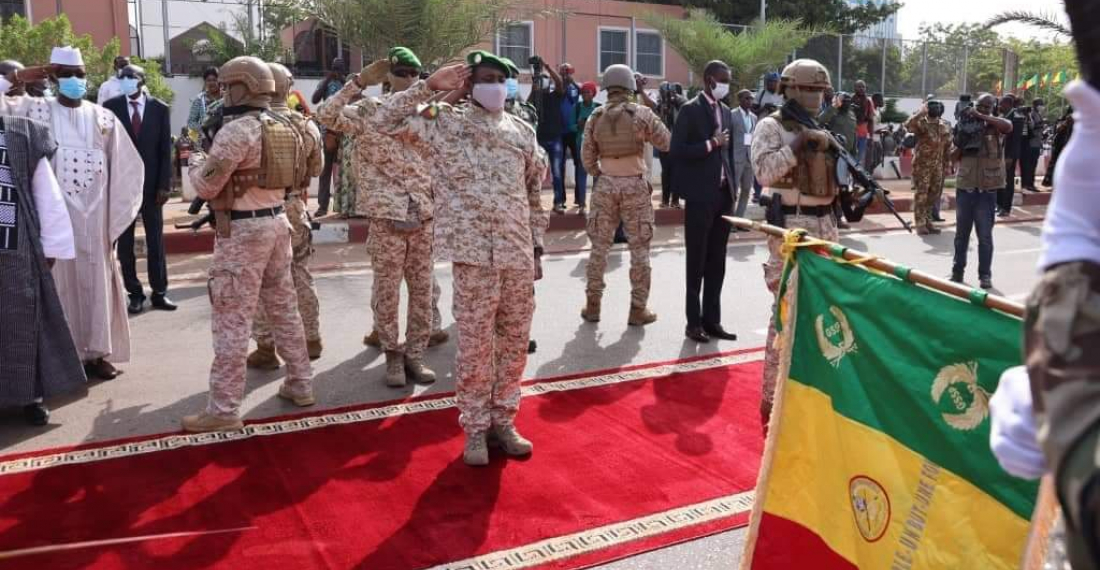Thousands of Malians demonstrated in Bamako on Wednesday (22 September), the day marking the 61st anniversary of independence. According to Agence France Presse, they called for support of the military-dominated transitional government which is currently in a stand-off with international partners.
The transitional authorities and their president, Colonel Assimi Goïta, are under pressure, in particular from France, Germany and the Economic Community of West African States (ECOWAS), to organise elections in February and forgo any possible co-operation with the Russian private security group Wagner. This follows reports that the country is planning on hiring 1,000 Russian mercenaries, to help protect its leaders and support the current anti jihadist military operations. The French Armed Forces Minister has, however, warned that France "will not be able to co-habit with mercenaries".
In a speech on Tuesday evening, Colonel Goïta called on the country's partners to "better understand the situation in Mali, marked by a deep multidimensional crisis".
During the demonstration, the Malians expressed their rejection of any "outside interference", but also their willingness to see Russia intervene. Many participants in Wednesday's rally waved Malian flags and even some Russian ones. Others carried signs that read: "Long live Assimi, long live the transition, long live the government".
"If Wagner went to liberate Syria, if Wagner went to liberate the Central African Republic, then we welcome Wagner to Bamako to liberate Mali. To asymmetric warfare, we propose an asymmetric solution, which is called Wagner. This is the truth and today it is the end of French Africa," said Adama Ben Diarra, spokesperson for the "Yerewolo - standing on the ramparts" collective which had organised the demonstration.







